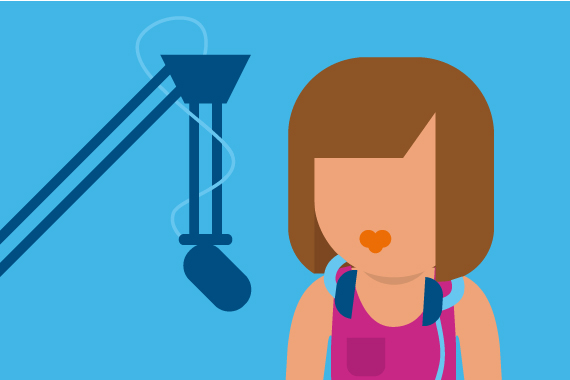Alcohol, the student drinking culture & mental health
Since COVID-19 the significance of young people’s mental health has risen drastically, and with many more people viewing their mental health just as important as their physical health, I think it’s only right that I highlight this often forgotten cause of poor mental health.
Mental health was rarely spoke of when I was in high school, and I can’t remember ever studying it. I do remember having lessons about drugs and alcohol and studying the negative physical effects, but never its mental effects. The curriculum is changing now which is a huge step forward, but it still leaves people who have already left school with a lack of knowledge and understanding. It’s super important for all generations to become more aware of both the direct and indirect impacts of alcohol on our mental health.
The direct effects
Regular, heavy drinking interferes with chemicals in the brain that are vital for good mental health. So while we might feel instantly at ease after a drink, alcohol can have long-term impacts on our mental health and can contribute to feelings of depression and anxiety, and make stress harder to deal with. We have been conditioned to think that alcohol will solve all our problems, by the people around us, celebrities and the media.
Been fired from your job? No worries! Just head down to the pub, grab a pint, and forget about it. Feeling lonely? A bottle of wine can be your best friend! Hard day at the job you hate? It’s happy hour – apply for a new job another day!

Image source: https://nicoboston.com/why-you-should-you-still-have-happy-hour-even-at-a-distance/
After you learn about the negative effects alcohol can have on your mental health, it’s crazy to think back on all the films you’ve watched where a character has drunk alcohol in an attempt to make themselves feel better or solve their problems. Alcohol is actually a depressant that alters the chemicals in your brain, and therefore often does more harm than good when trying to fix up your emotions. More often than not, you are not actually solving anything when using alcohol as a coping mechanism, in fact you’re making your problems worse and this can contribute towards poor mental health. As a young person, it’s so important that you develop the ability to deal with and face your emotions, instead of drowning them in alcohol like Leonardo DiCaprio in The Great Gatsby, Bradley Cooper in A Star is Born and Cameron Diaz in The Holiday.
Everyone may experience this differently but for people already suffering with a mental illness, alcohol can make things worse by intensifying underlying mental health issues.
The indirect effects
As most of you have probably come to learn, alcohol can make us feel pretty rubbish the next day, leading to a 24-hour or more period of laziness, poor diet choices and degrees of physical pain. Finding the will to get on top of your to-do-list is quite hard when you have a painful headache, are feeling irritable, tired and are throwing up. If this becomes a regular occurrence, you will find yourself struggling to complete life’s every day tasks and this in turn will start to impact your mental health.

Image source: https://www.insider.com/what-should-you-eat-and-drink-when-youre-hungover-to-feel-better-2017-11
When I turned 18, I was out drinking most weekends and I would spend Monday to at least Wednesday feeling rough, down, tired and anxious. During my first year at university, I went through a whole semester not caring about my academic performance because I was too busy out partying and feeling sorry for myself throughout the week ahead. When I got to my final semester I was so behind on my work and this kicked in further feelings of stress and anxiety. I managed to turn myself around in second year, and created a more positive study–work–life balance for myself. I’ve learnt my limits and the hungover, unproductive and depressing week days are gone! My point being is you really don’t have to sacrifice your social life. Go out and have fun, have a drink if you want to, but don’t let it ruin your next day.
The student drinking culture and the fact that the whole university experience is centred around it is alarming. If you’re a young adult who is interested in finding out more about how you can lead a life with no alcohol-related regrets, then please follow the links below:
No Regrets contains blogs written by young adults, sharing their experiences, advice and responsible drinking strategies.
https://joinclubsoda.com/courses/how-to-drink-mindfully-2/
I will shortly be recording a podcast with a mental health expert, where we will have a casual conversation around mental health and alcohol. Please keep an eye out for this in the future, and if you are interested and would like to take part in the podcast recording please contact MindMate … We would love to hear from you!
For straight advice and information about alcohol and drinking on MindMate go here


